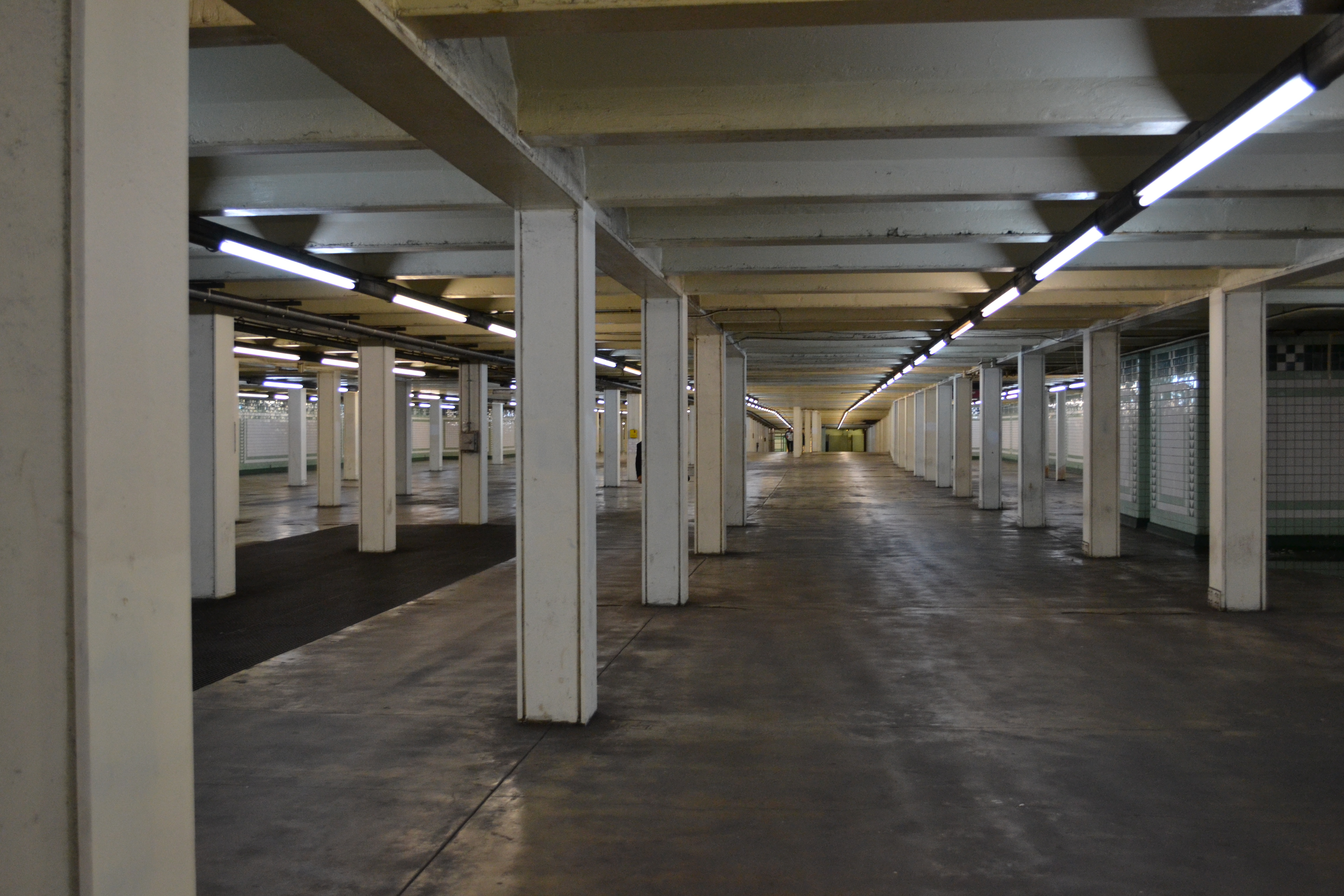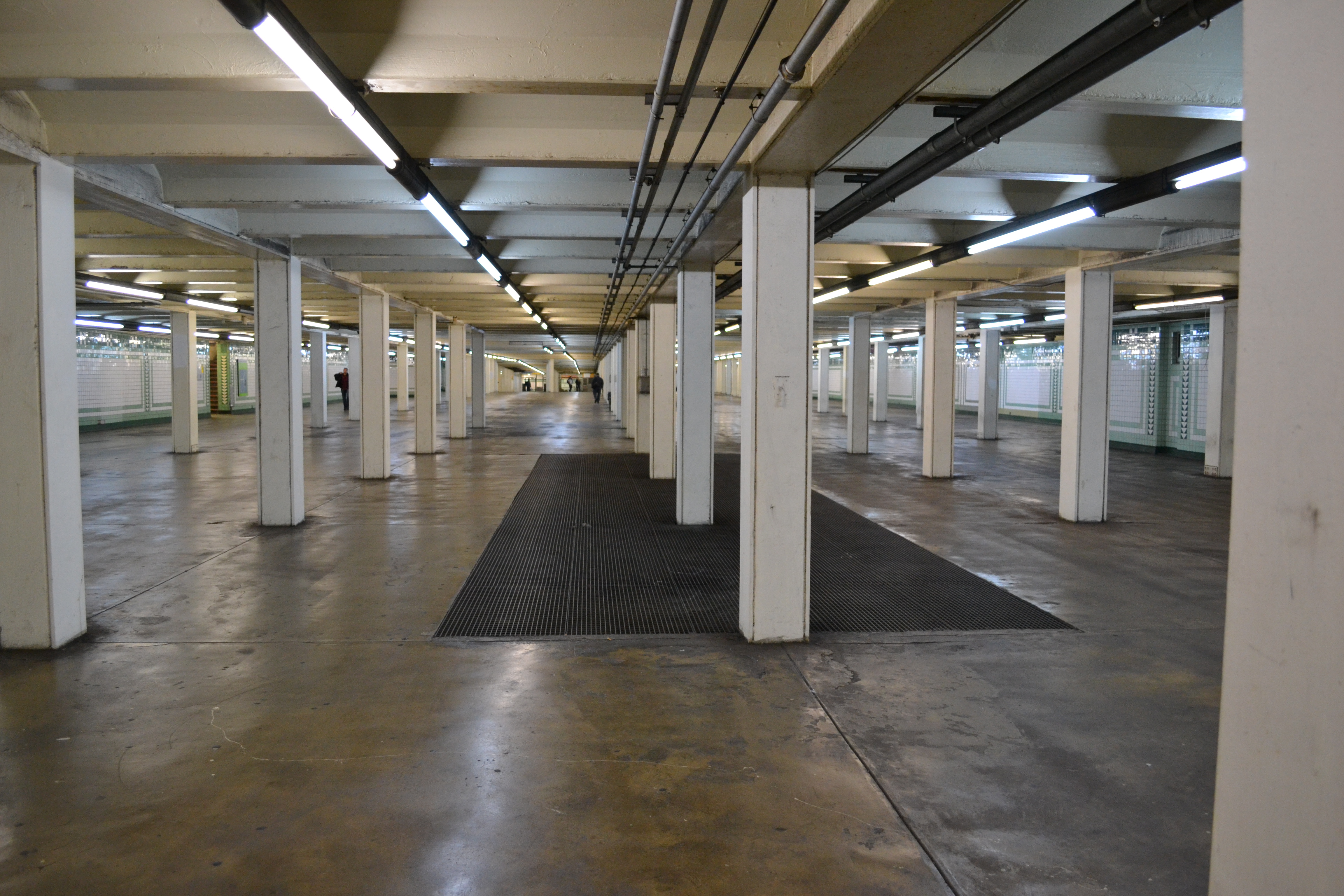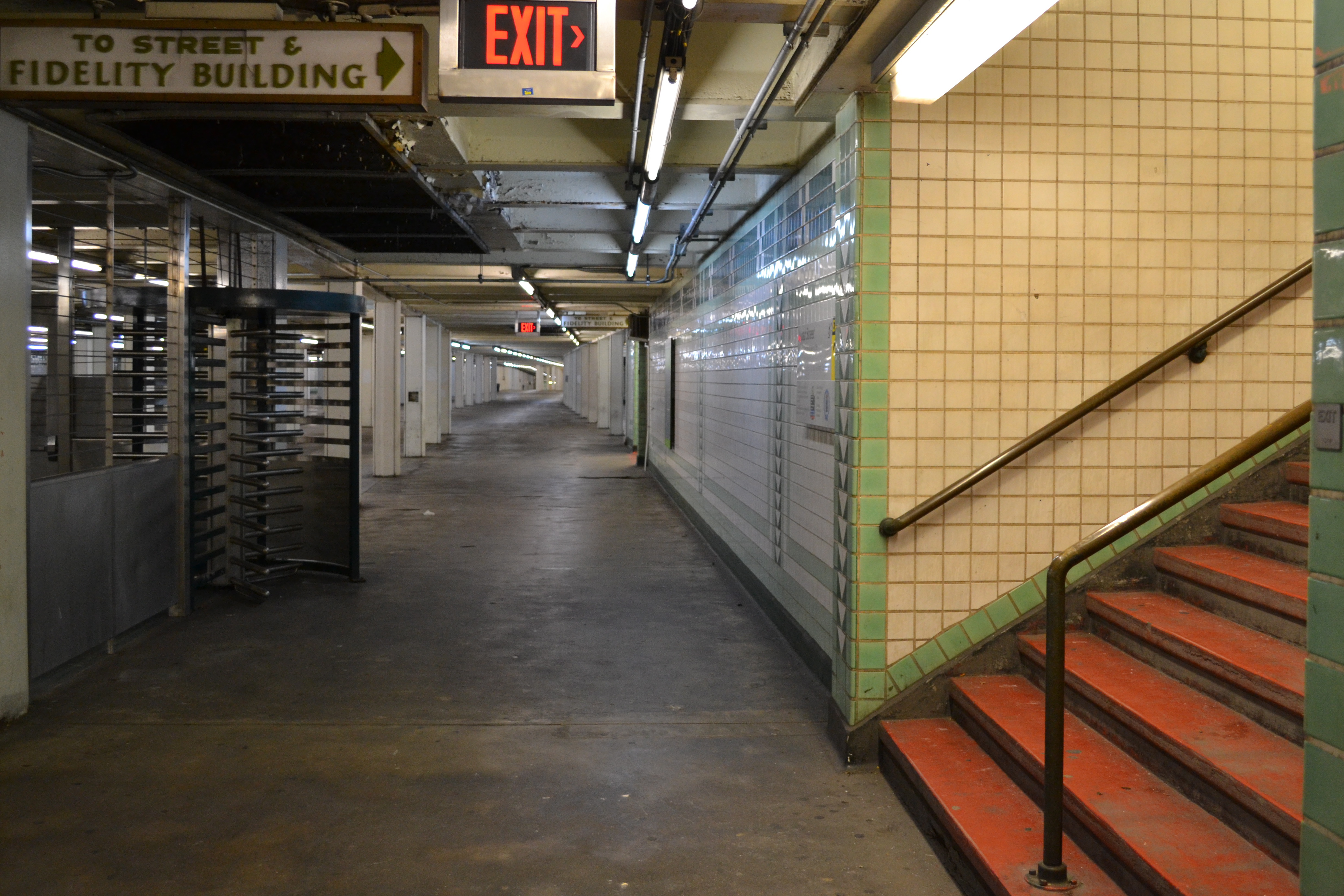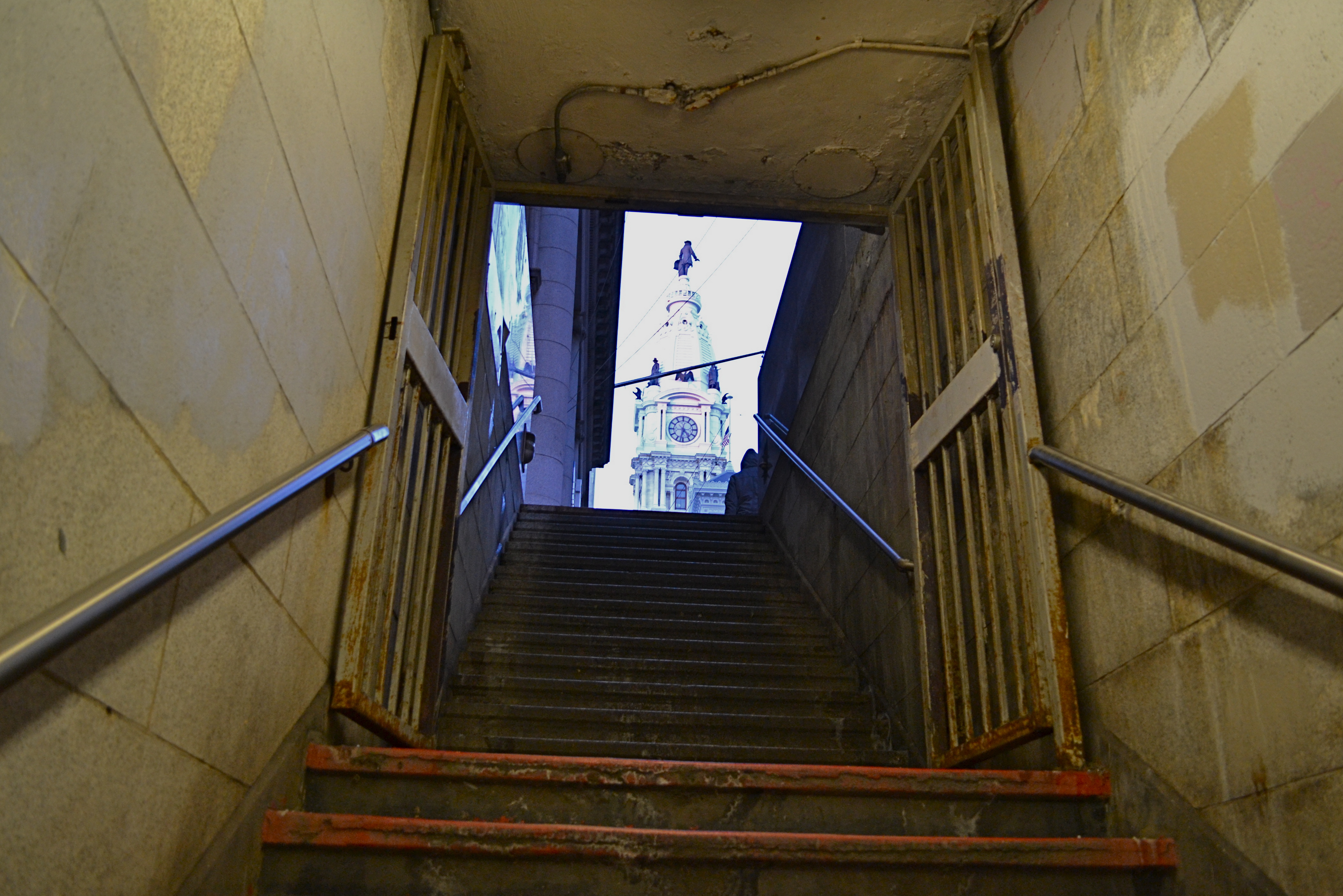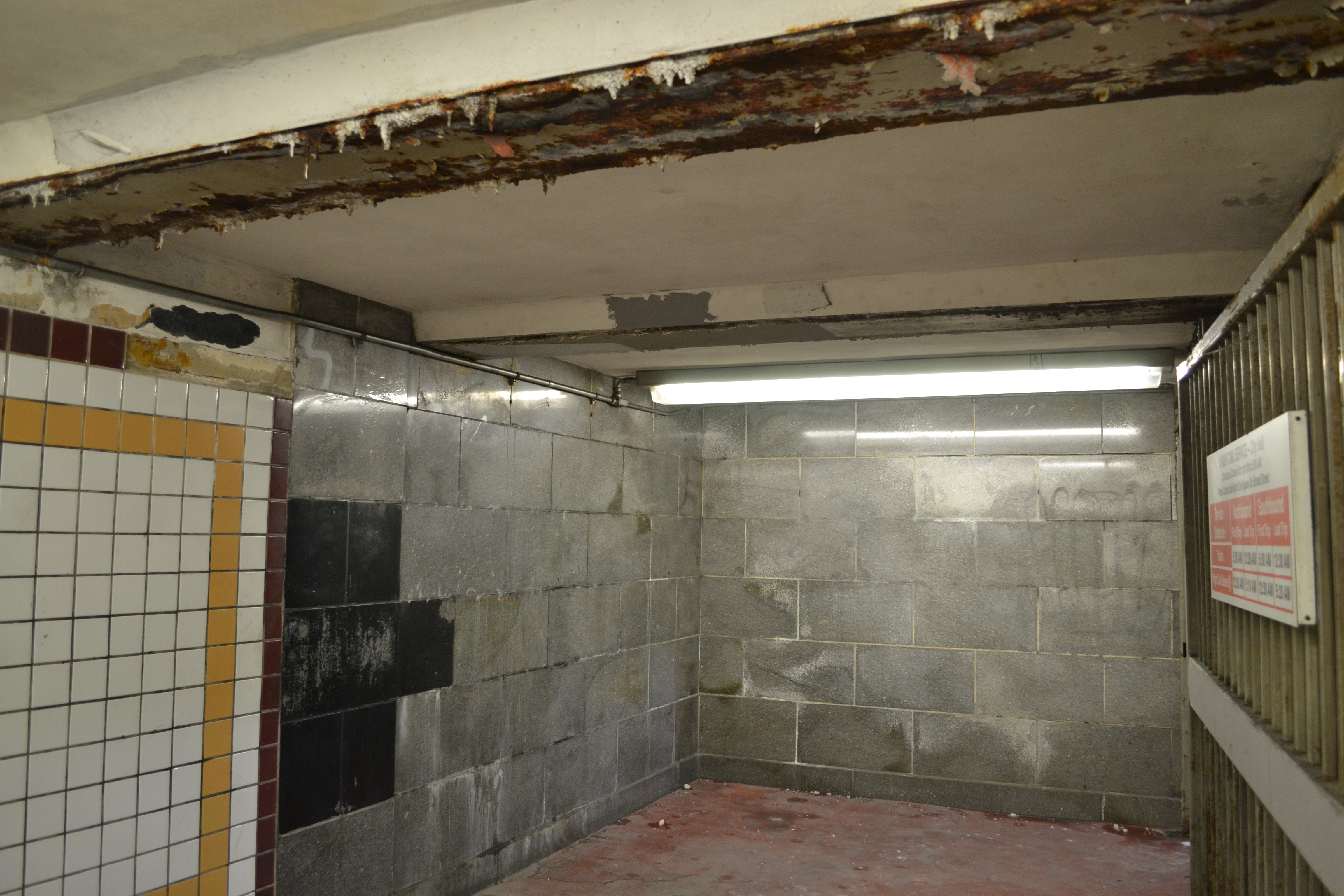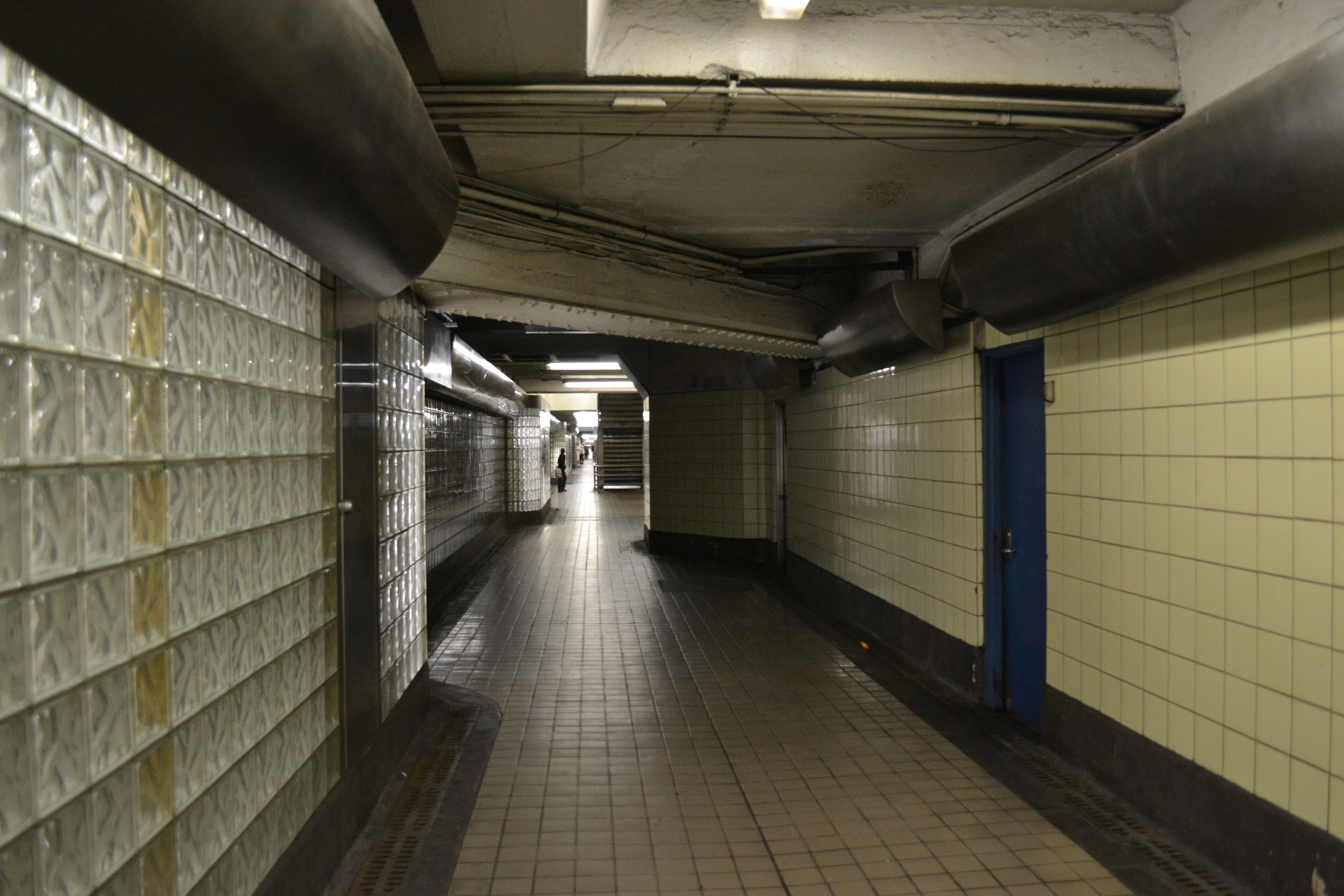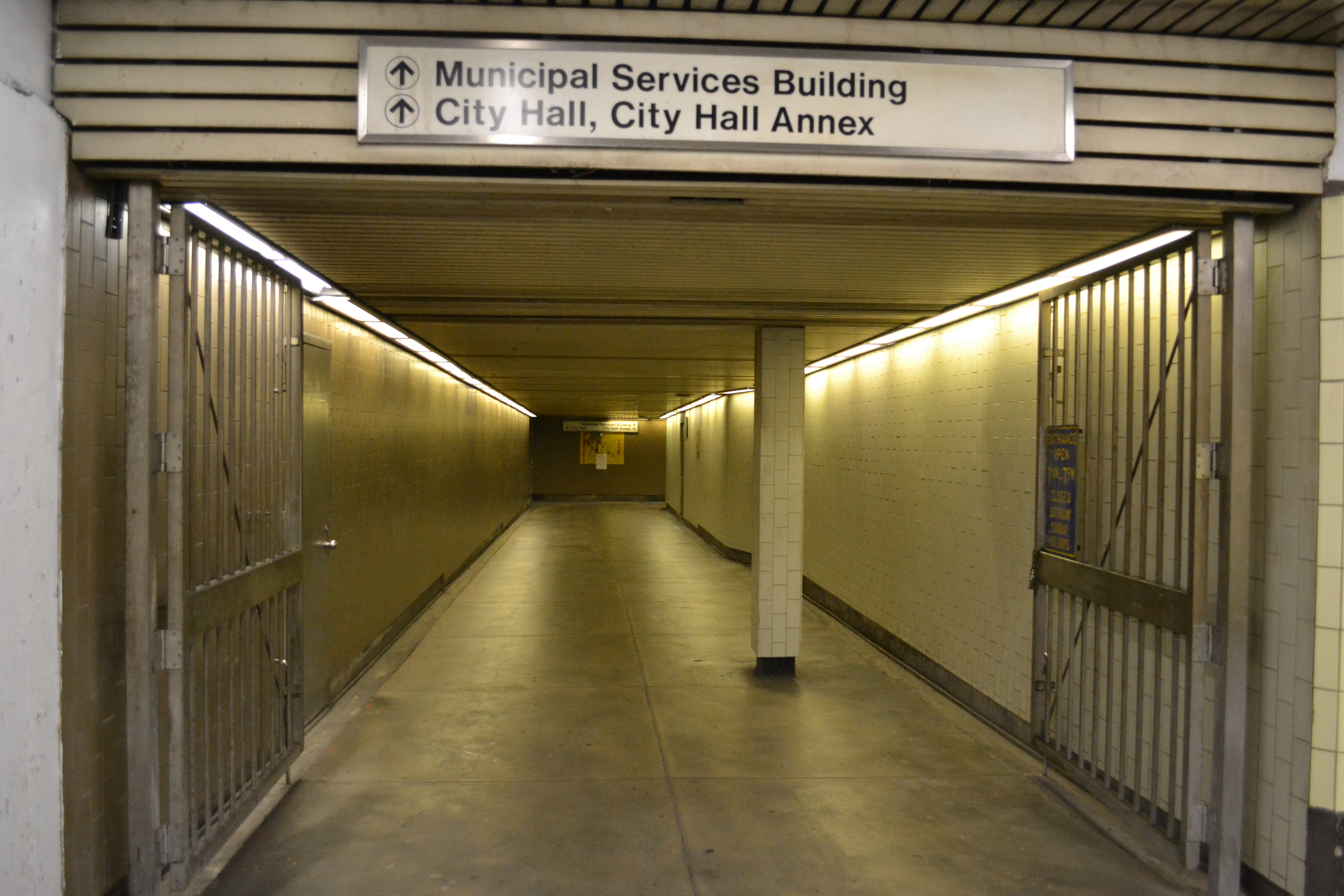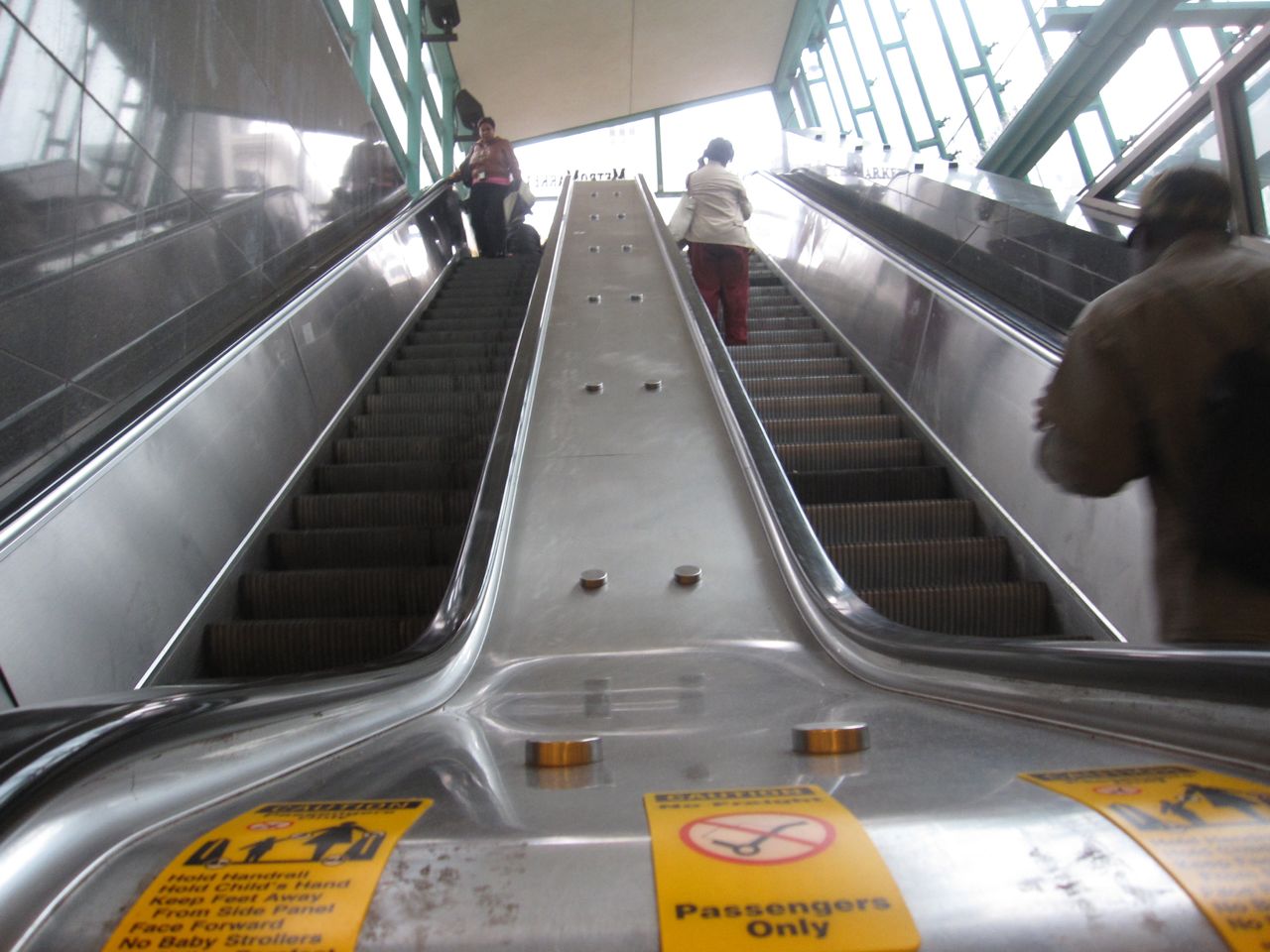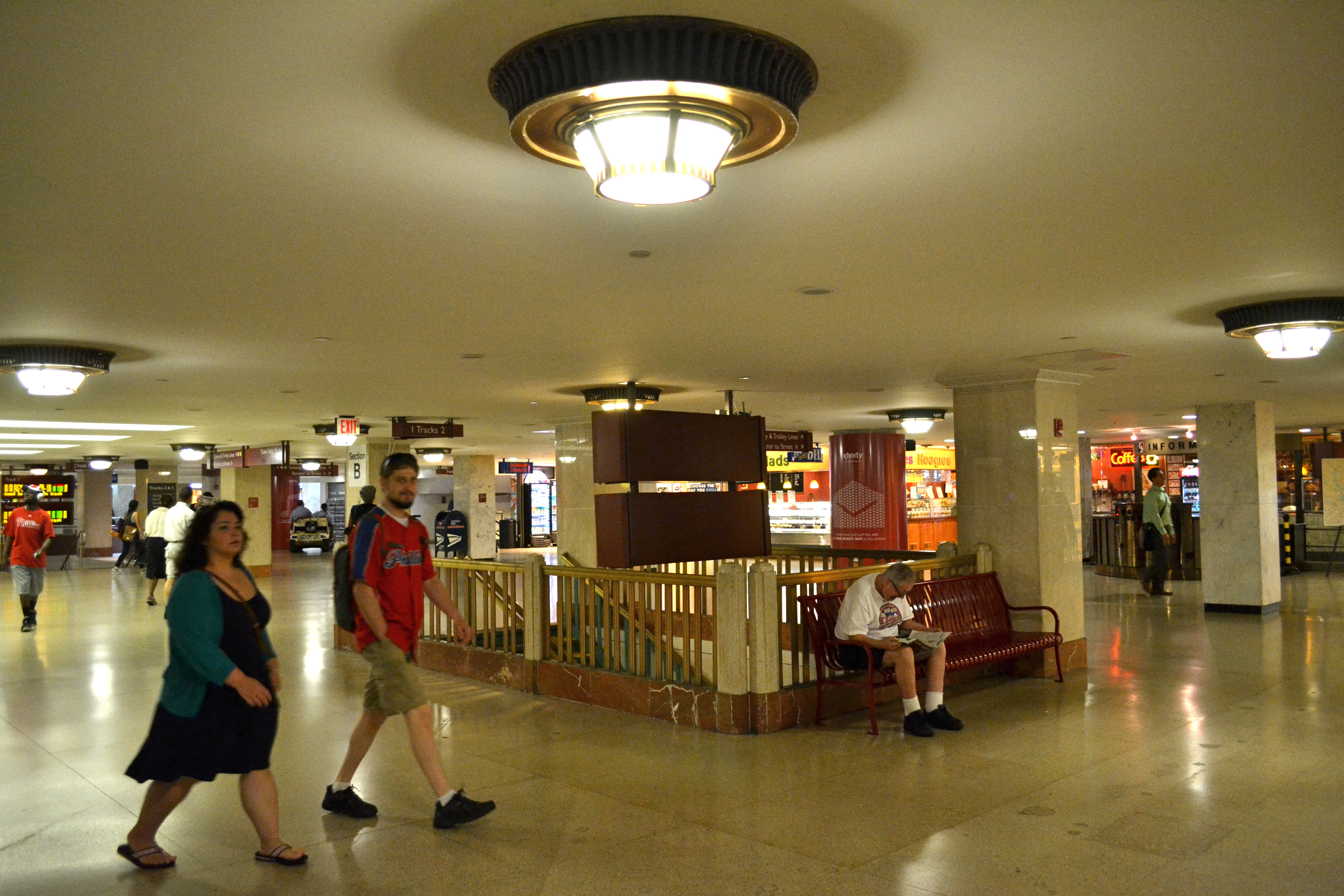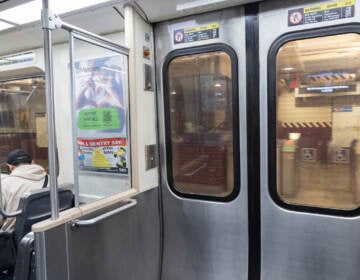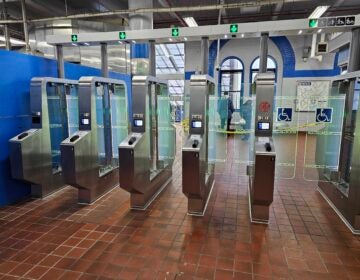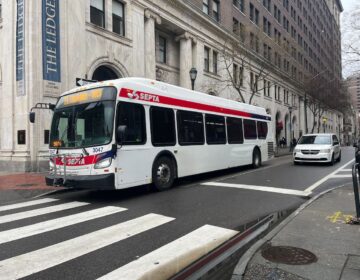SEPTA to improve user experience in Center City’s underground concourses
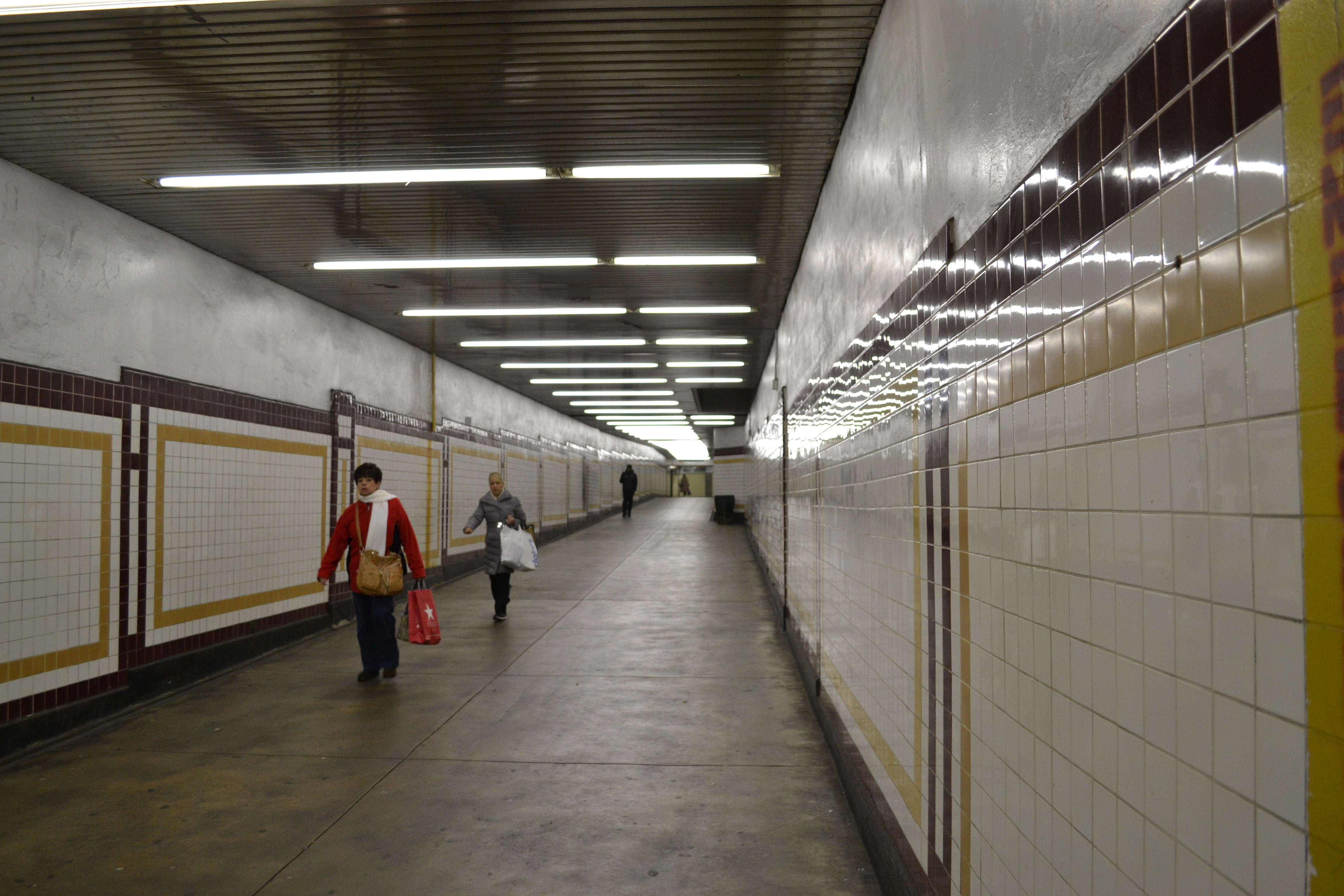
If you have ever cursed SEPTA while enduring a smelly Center City station that included suspect puddles which leaked through the walls even though it wasn’t raining, chances are you should have been chiding the city instead.
Contrary to what many might assume, the city actually owns Center City’s underground subway concourses. But now SEPTA and the city are negotiating a new lease agreement that would give SEPTA maintenance and capital improvement responsibilities for the network.
Beneath Center City, 3.5 miles of concourse stretch from 8th Street to 18th Street and south to Walnut-Locust Station. While it seems like SEPTA would own most, if not all, of this property, especially the 13th Street concourse connected to its 1234 Market Street headquarters, the city purchased the underground concourses in 1968. At that time, the Philadelphia Transportation Company (PTC) went out of business, and SEPTA acquired its assets. SEPTA did not have the financial backing to issue bonds for the underground concourses, though, so the city stepped in.
“Heretofore, I think people assumed they were SEPTA’s,” said SEPTA General Manager Joseph Casey. “Whenever people complained about a stinky station or a messy station, they’re really thinking about some of the entrances to our system and they weren’t necessarily SEPTA’s responsibility.”
Today the city spends about $1.3 million on annual maintenance and utility costs for the concourses, and SEPTA has identified $40 million worth of capital needs. Under the lease agreement working its way through City Council, SEPTA will take over maintenance responsibilities with a promise to make capital improvements.
“We primarily get blamed for the condition of [the concourses],” Casey said. “We now have the financial wherewithal to fix them up, which the city does not, nor have they ever, nor do they have plans to fix them up.”
Since 2008 Center City District (CCD) has cleaned all 3.5 miles of concourse through a contract with the Department of Public Property, but CCD President and CEO Paul Levy said that there were many physical maintenance needs in the concourse that were outside the scope of that contract.
“To the extent that SEPTA can generate new revenues that can be used to upgrade physical conditions in the underground walkways, it will be very beneficial to transit riders and pedestrians,” Levy said in an email.
This month, after a contentious hearing primarily on the part of Councilman Bill Green, the lease agreement passed through the City Council Committee on Public Property and Public Works. The agreement is expected to go before full council in January, and after that it will go before SEPTA’s board of directors. If all parties agree, SEPTA will have two years to present the city with a maintenance and improvement plan.
“We think we can probably give it to them a lot sooner than that,” Casey said. “Probably within six months we’ll give them a plan.”
The first order of business will be to fix the escalator at 15th Street and some of the other vertical units, which, you guessed it, do not belong to SEPTA. Other fixes will include security and lighting improvements.
Retail and revenue
SEPTA hopes to improve the concourses “to the extent that we can potentially make something useful from a retail standpoint or make something useful to the area, especially when you’re talking about the Walnut-Locust space,” Casey said.
At the moment, SEPTA gets all of the advertising revenue from the underground concourses, and that revenue goes toward the cost of operating SEPTA’s city transit division. Under the new agreement, if new sources of funding such as retail are created, the city will receive 40 percent of the revenue minus SEPTA’s maintenance costs.
During the Committee on Public Property hearing, Councilman Green expressed concern that, at 40 percent minus maintenance costs, the city would not end up seeing any revenue.
“Why are you telling us we’re going to get 40 percent of what’s really nothing?” he asked. Later he added, “This seems to be a very poor deal for the city.”
Andrew Stober, Mayor’s Office of Transportation and Utilities (MOTU) chief of staff, countered that while the city will probably not see much revenue in the short term, this stipulation protects the city over the long term. In the event that there is revenue generated in the future, the city will receive a portion of that.
“There is a very significant benefit to the city in terms of transferring capital responsibility and having [SEPTA] take over,” Stober said. “Those needs are no longer competing with the [city’s] myriad of other needs.”
The lease agreement also absolves the city of personal injury lawsuits and settlements. In the case that such a lawsuit is filed, SEPTA’s legal team will handle the defense, and the city will be able to participate in the defense to whatever extent it chooses.
Casey said he is optimistic that City Council will approve the lease agreement.
“I would personally like to see the improvement in the concourses for our customers,” he said.
For an underground walking tour from 18th and Arch streets to 7th and Market streets (led by Deputy Mayor for Economic Development Alan Greenberger and filmed by PlanPhilly’s Kellie Patrick Gates) view “Bringing netherworld to life,” below.
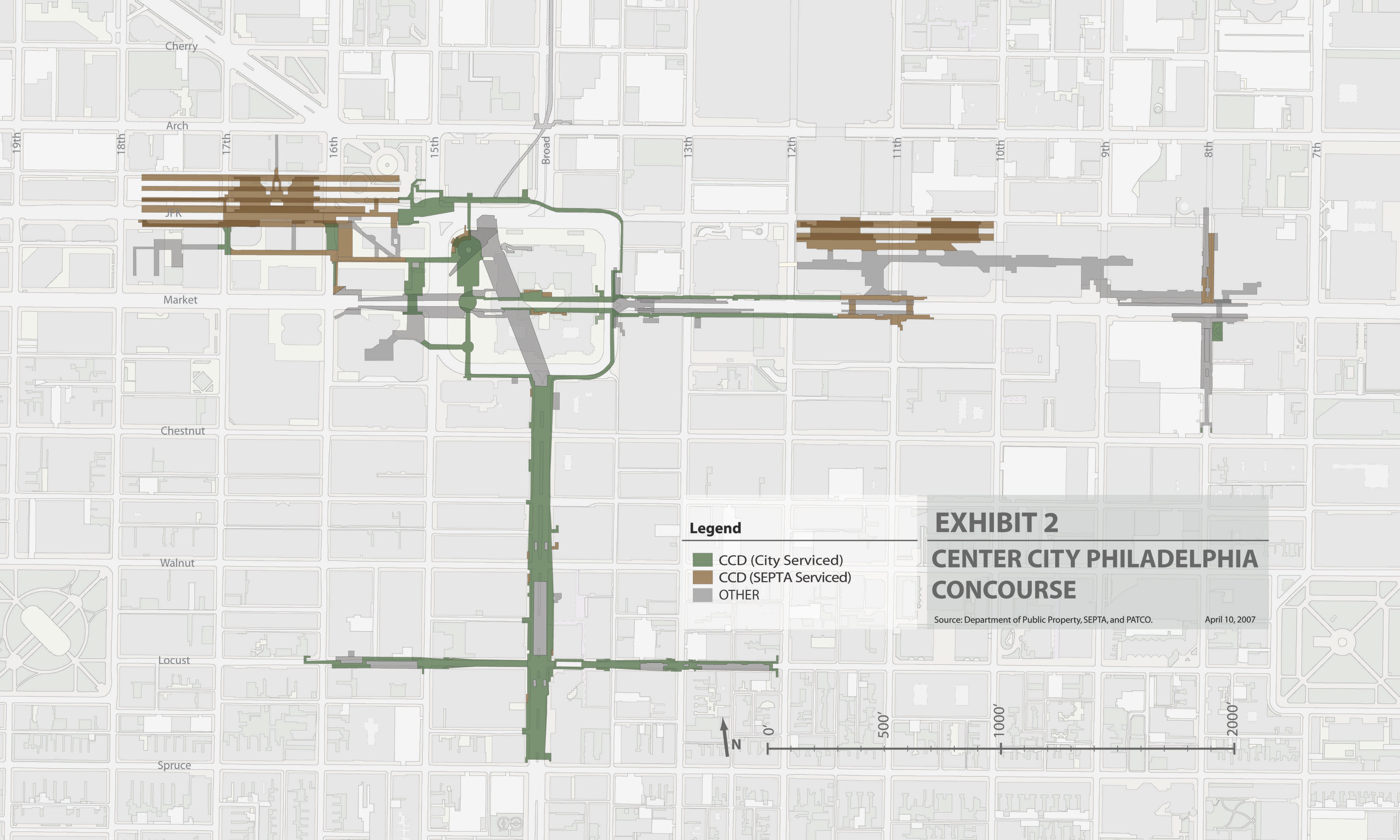
WHYY is your source for fact-based, in-depth journalism and information. As a nonprofit organization, we rely on financial support from readers like you. Please give today.



